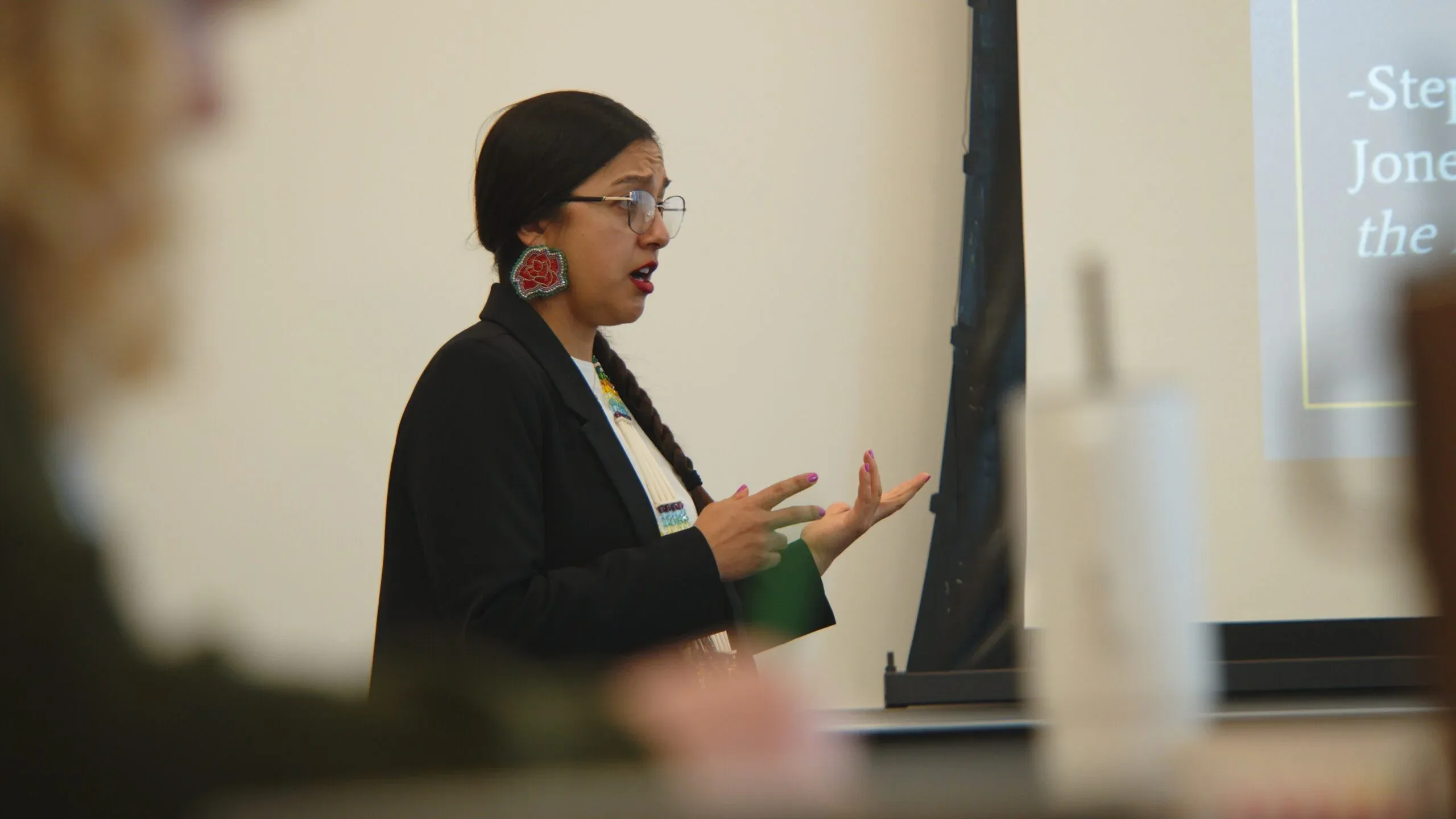
Raised on the Duck Valley Reservation of the Shoshone-Paiute in Owyhee, Nevada, Toneekia Hernandez (Boise State, English Literature, ’17) has countless stories of feeling constrained by Native American stereotypes in school. Many education systems, she said, represent Native Americans as “what we were, not what we are — it isn’t wrong, but it isn’t quite right.”
“My town is 140 miles from Boise, and we act like it’s the opposite side of the world,” she said. “The more these kids know now, the more our future knows, and our communities.”
While working as a long-term substitute for secondary English at the Owyhee Combined School, she encountered the same cliches and stock stories. That’s why she jumped at the chance to participate in the Boise State Writing Project’s (BSWP) Indigenous Voices Workshop. The BSWP is a branch of the National Writing Project, a nationwide initiative that advances teaching at all levels by sharing practices in writing instruction. In Idaho, Boise State’s chapter has reached thousands, and its Indigenous Voices workshop has run since 2021, promoting the accurate and respectful representation of Indigenous peoples in classrooms.
Hosted in June at Boise State’s Interactive Learning Center, the workshop solicits help from Indigenous educators like Hernandez to teach and guide participants in incorporating Native representation into course curricula, with a focus on cultural humility, modern context, and Indigenous perspectives and presence in literature, art, politics, history, and science.
“It’s important for students to know these communities, in the world and Idaho: the long-standing cultural-historical significance, the landscape, and their role in our state,” said Gretchen Schulz, a Boise State student working on her Ed.D in Curriculum and Instruction who first pitched Indigenous Voices to the BSWP.
While working on her Bachelor of Arts in English at the University of Idaho, Schulz, who is not Native American, started working for the university’s Native American Student Center. The experience piqued her curiosity, and gave her an opportunity to connect with Native students from across Idaho and beyond. In 2017, she participated in BSWP’s Summer Institute, and in 2020, returned to its directors to pitch a workshop that would develop more relevant curricula around Native Americans. Thus Indigenous Voices was born, and she has been one of its instructors ever since.
While recruiting Native speakers and teachers for the program, Schulz’s search led her to Hernandez, a fellow University of Idaho alum and Indigenous Knowledge for Effective Education Program scholar. Being Native American herself with a background in education, Hernandez made her a perfect fit. Schulz connected with her about the workshop, and Hernandez quickly joined.
Through the program, Idaho teachers are building knowledge and course curricula that portray Indigenous peoples more accurately, but for Hernandez, one of the core benefits will be Native students seeing their culture, lives and experiences reflected at school.
“Making room for the Indigenous student is important,” she said. “It’s better for students, Native and as a whole. I want people to know we exist in a modern context.”
Originally Posted at Boise State University
